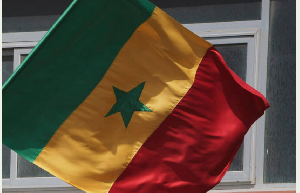“Nkrumah is no more; but the ideas which impregnated his life and which are enshrined in his speeches will never die”- Col. I.K Acheampong Inarguably, the remarkable profundity of ideologies of Dr. Kwame Nkrumah will ever hold and continue to be of explicit and implicit significance to the dreams of Ghana and Africa at large. By far, if there would ever be, no black leadership in Ghana and Africa can, in no wise, be compared to the worthy feat of leadership handed down by Dr. Kwame Nkrumah to the historic moment of the “Cult of Pan-Africanism”. This leader is the one who thought not of his personal aggrandisement but purposed and established to shed the light of perpetual prosperity to livelihood empowerment of the ordinary Ghanaian and to the wonder of it all, Africans. Osagyefo, despite the orchestrated, wicked plots of the US-Central Intelligence Agency working through his own affiliates and people, exhibited the tenacity of purpose and unwavering ideas to set on high the total liberation of the Ghanaian and African economies to expurgate the sorrows of abject poverty from the black man.
In no uncertain terms, this would not have been the state of the economy of Ghana if the country had heeded to and adapted the ideas of the first president rather than turning to contemporary indecent partisan politics without candor. Indeed, Ghana has a cause and this is it that significant development can only be realised when we go back to implement Dr. Kwame Nkrumah’s ideas that serves to completely characterize the ‘new model of development’ today. No wonder BBC has acknowledged him as the African of the Millennium.
The Relevant ‘Model’
“We shall measure our progress by the improvement in the health of our people, by the number of people in school, and by the quality of their education; by the availability of water and electricity in our own towns and villages, and by the happiness which our people take in being able to manage their own affairs. The welfare of our people is our chief pride, and it is by this that my Government will ask to be judged”- Broadcast to the Nation, 24 December 1957 (Credit: AEON International- Kwame Nkrumah: A Story from CIA files). This is a statement that truly reflects the facets of contemporary strategies and models of development and was stressed by Nkrumah as far as 1957. Today in Ghana, the measure of development is taken to mean GDP growth, currency depreciation and stabilisation and low inflation rate. Is this right the right approach to enhance living standards? Of course, not.
Despite his weaknesses as a human being, it is worthy of note that Dr. Kwame Nkrumah’s extraordinary oratory, glib rhetoric and zeal reflected his indefatigable ideologies that is certainly characteristic of the “new model of development” in the world today. But for the presence of low-minded and stomach-led leaders who were consciously and unconsciously manipulated to put on hold the only possible agenda for Ghana’s development by eliminating Dr. Kwame Nkrumah and as such expurgate his ideologies from history books, the efforts to make the economy a livable one would have been very easy.
It is worthwhile to note that the ideologies laid down in the 1960s that is perceived as outdated believe it or not is the “model of development” adopted by the major Asian countries especially those in the Eastern and Southeastern corridors. As a leader of vibrant national passion for development and self-reliance, Dr. Kwame Nkrumah embarked upon very costly nationwide infrastructure improvement scheme and in the same vein, gave credence to home-grown solutions towards insuring food security by strategic improvements in the agriculture sector including business ventures.
In his book, “Neo-Colonialism: The Last Stage of Imperialism” Nkrumah stated categorically (and as such predicted) the rampaging nature of multinational companies, Africa’s dependency on aid, debt and increasing poverty in the absence of greater economic and political integration.
Not to mince words, Ghana is completely off track with r egards to the realistic model of development to alleviate extreme poverty. The gleaming importance of the massive industrialisation drive undertaken by Dr. Kwame Nkrumah has utterly been dimmed with a seemingly ineffective model of development (possibly developing the agriculture sector to stabilise the economy which is very unrealistic). As if to say that these countries had a cue from Nkrumah’s ideas, Taiwan and Malaysia have made great strides in development by simply adopting the industrialisation drive, a significant portion of Nkrumah’s ideologies. It is recorded that Taiwan once an agrarian economy, agriculture now only constitutes 2% of GDP, down from 35% in 1952. Taiwan (Asian Tiger) is now among the best leading hubs in such technologies as integrated circuits, laptop computers, modems and data communications. It is of no wonder that Taiwan is categorised as an advanced economy by the IMF and high-income economy by the World Bank. Malaysia, though the leading producer and exporter of Oil Palm diverted investment away from agricultural production and into purposive manufacturing. The spate of growth of import-substitution industries in that country, undoubtedly, bolstered their economy to higher heights of prosperity. Ghana, indeed, learnt nothing from the ideas Nkrumah anticipated would be of futuristic benefits. With the increased numbers of defunct small and medium scale industries and ineffective operations of functional ones, one is utterly right to say that Ghana is not serious in her development pursuits. Where is the economy heading to? Can the great leap forward for Ghana be centered on the volatile agriculture sector?
In furtherance of this purposeful argument, taking a cue from his propositions in the controversially-regarded book “Neo-Colonialism: The Last Stage of Imperialism”, the economy of Africa and for that matter Ghana would not have been completely structured and nurtured to fully depend on foreign aid that serves no practical usefulness to recipient countries in the long run, if they had listened and enthusiastically applied his realistic ideas. It is the reason why Africa remains the world’s most aid-dependent and indebted region and as such extreme poverty still ensnares the livelihoods of the majority poor in a resource potential region. Nkrumah’s ideas accurately believed in the potentials of local economic development (LED) while lessening (or avoiding) the total dependency on foreign aid. Ghana would still continue to accept the “bait” of the World Bank (US$535 million) and IMF even when the strings attached is very excessive for supporting local conditions. However, the country cannot help but to accept this deadly offer simply because the country has relegated to the background the ideas in the 1960s that made the prophetic revelations of today’s new realistic model of development. Despite the difficulties the economy of Malaysia experienced under the Asian financial crises, Dr. Mahathir Mohamad rejected the loan and directives of the IMF and adopted the strategy of capital control (their own initiatives that worked perfectly well). This could have been replicated by Ghana if Nkrumahism was in force, though Nkrumah sought for financial supports from the United States Government, World Bank and other financial institutions in the construction of the Akosombo Dam. And as such, Nkrumah engaged in providing enormous financial support to Guinea for them to gain liberal status and development and many other African countries. Stop begging for loan because it is not the pragmatic solution to our plight. With regards to Nkrumah’s comments on the rampaging nature of multinational companies, it is not surprising that Ghana has attracted the unsavoury reputation of the “Paradox of Plenty”. Apart from the fact that the average Ghanaian in the mining communities are being subjected to the tremors of serious environmental and health hazards the poor people are still reeling under harsh economic conditions even though valuable minerals dwell with them. There is no gainsaying that almost all multinational mining companies are making a mess of the state of the local people and the economy at large considering the vast revenues that accrue to them and the poor state of communities in which they operate. Is this not the state of total exploitation Nkrumah anticipated? Had Ghana listened to him, though not too late, the group of people from China would not have physically attacked on our own people who live in their legal lands in their (Chinese) quest to make cheap wealth through illegal mining. These situations apply to several other multinational companies in diverse field of endeavours.
A whole lot of issues would still arise; a hard look at ourselves sends the clear indication that “Nkrumahism” should be revisited and given a place in our humble but ailing economy for the realisation of true accelerated growth and development.
The Clarion Call!
It is really saddening to look into the present stance of the purpose and the spirit of unity of the Conventions Peoples’ Party (CPP), the party with the greatest ever legacy in the history of Ghana- spearheading the achievement of self-government. CPP should stand up for the cause that Dr. Kwame Nkrumah’s ideologies and strategies is the only possible pragmatic solution to Ghana’s woe and fight the good fight to win power again. It is about time the platform was created for the ideas that reflect true and realistic policies and directions to vigorously lead the country’s development agenda. For now, Ghana needs another massive industrialisation drive for a resilient and an improved economy or nothing else.
It is, indeed, deserving that Ghana and the African continent share in the Centenary Birthday Celebration of the leader many in the world admire so much on Monday, 21st September 2009. The day, “Founders Day” which has been declared a statutory public holiday to pay homage to the leader whose irresistible and splendid ideas would have salvaged the economies of Africa and Ghana in particular when these ideas was given the credence it deserves, is a leap forward for the country and Africa. However, this is an opportunity for Ghana to get the rude awakening of the fact that we ought to go back and make amends of our great mistakes. It is also my sincere opportunity to celebrate with Dr. Kwame Nkrumah wherever he is since my birthday falls exactly on that day. Dr. Kwame Nkrumah was the man for Ghana. Long live Nkrumahism, long live Ghana and long live Africa!!!
The author Stephen Yeboah (stephenyeboah110@yahoo.com) is at the Department of Planning, Kwame Nkrumah University of Science and Technology, Kumasi-Ghan
Opinions of Monday, 21 September 2009
Columnist: Yeboah, Stephen














